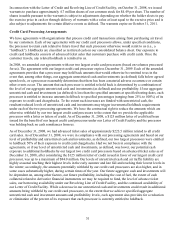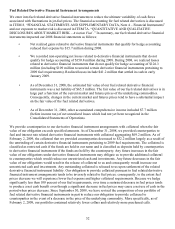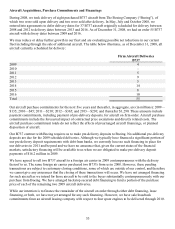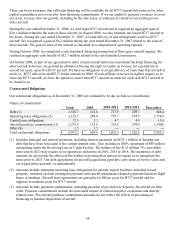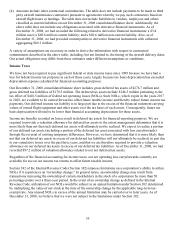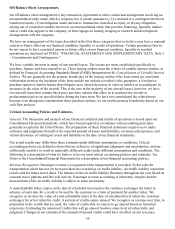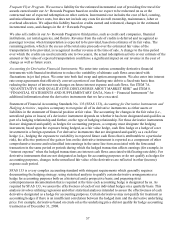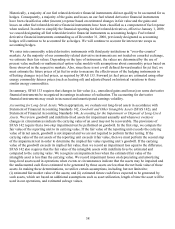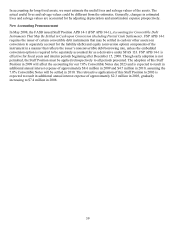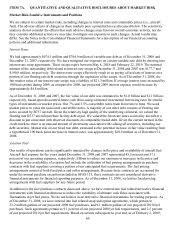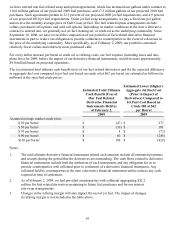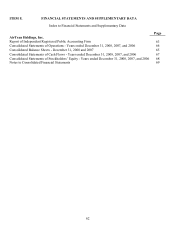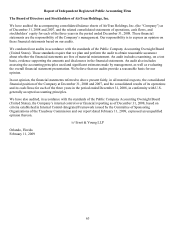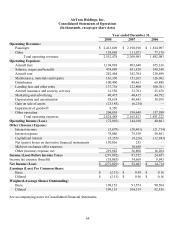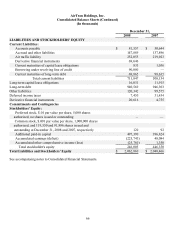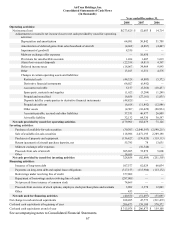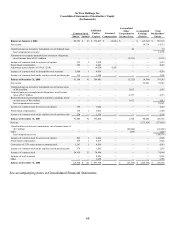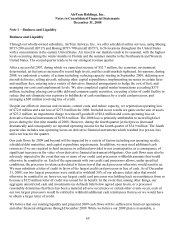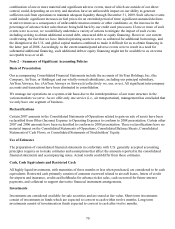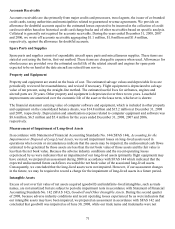Airtran 2008 Annual Report Download - page 69
Download and view the complete annual report
Please find page 69 of the 2008 Airtran annual report below. You can navigate through the pages in the report by either clicking on the pages listed below, or by using the keyword search tool below to find specific information within the annual report.
we have entered into fuel related swap and option agreements, which has increased our gallons under contract to
116.0 million gallons of our projected 2009 fuel purchases, and 17.3 million gallons of our projected 2010 fuel
purchases. Such agreements pertain to 32.5 percent of our projected 2009 jet fuel requirements, and 4.9 percent
of our projected 2010 jet fuel requirements. Under jet fuel swap arrangements, we pay a fixed rate per gallon
and receive the monthly average price of Gulf Coast jet fuel. The fuel related option arrangements include
collars, purchased call options, and sold call options. Depending on market conditions at the time a derivative
contract is entered into, we generally use jet fuel, heating oil, or crude oil as the underlying commodity. Since
September 30, 2008, we have revised the composition of our portfolio of fuel related derivative financial
instruments in part to reduce our obligation to provide collateral to counterparties in the event of a decrease in
the price of the underlying commodity. More specifically, as of February 2, 2009, our portfolio contained
relatively fewer collars and relatively more purchased calls.
For every dollar increase per barrel in crude oil or refining costs, our fuel expense (including taxes and into-
plane fees) for 2009, before the impact of our derivative financial instruments, would increase approximately
$9.0 million based on projected operations.
The (a) estimated total ultimate cash benefit (use) of our fuel related derivatives and (b) the expected difference
in aggregate fuel cost compared to jet fuel cost based on crude oil at $62 per barrel are estimated as follows (in
millions) at the specified crude prices:
Estimated Total Ultimate
Cash Benefit (Use) of
Our Fuel Related
Derivative Financial
Instruments Held as
of February 2,
Estimated Lower (Higher)
Aggregate Jet Fuel Cost
(Prior to Impact of
Derivatives) Compared to
Jet Fuel Cost Based on
Crude Oil at $62
per Barrel
2009 2009
Assumed average market crude price:
$ 30 per barrel $ (47) $ 275
$ 50 per barrel $ (30) $ 101
$ 70 per barrel $ 8 $ (72)
$ 90 per barrel $ 60 $ (246)
$110 per barrel $ 106 $ (420)
Notes:
1. The total ultimate derivative financial instrument related cash amounts include all estimated payments
and receipts during the period that the derivatives are outstanding. The cash flows related to derivative
financial instruments include both the settlement of such instruments and any obligation for us to
provide counterparties with collateral prior to settlement of a derivative financial instrument. Any
collateral held by counterparties at the time a derivative financial instrument settles reduces any cash
required at time of settlement.
2. As of February 2, 2009, we had provided counterparties with collateral aggregating $32.2
million for fuel related derivatives pertaining to future fuel purchases and for our interest
rate swap arrangements.
3. Changes in the refining margin will also impact the cost of jet fuel. The impact of changes
in refining margin is not included in the table above.
61


